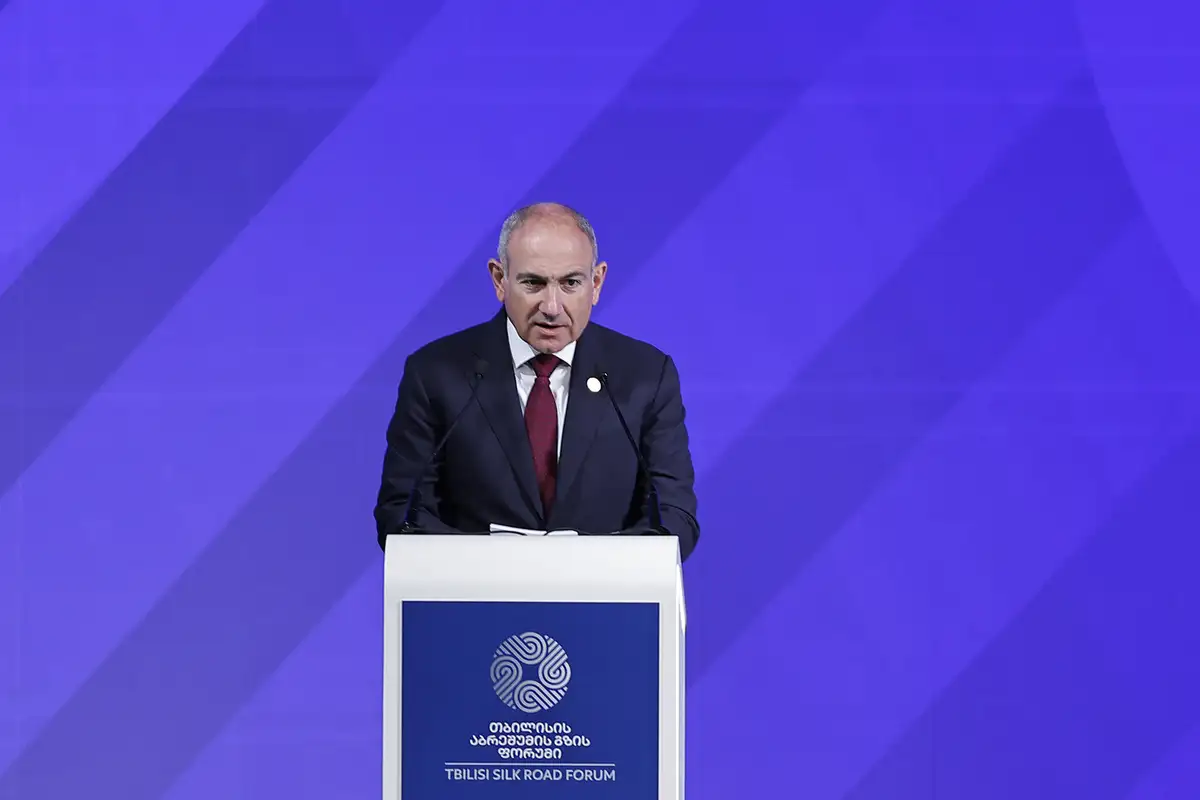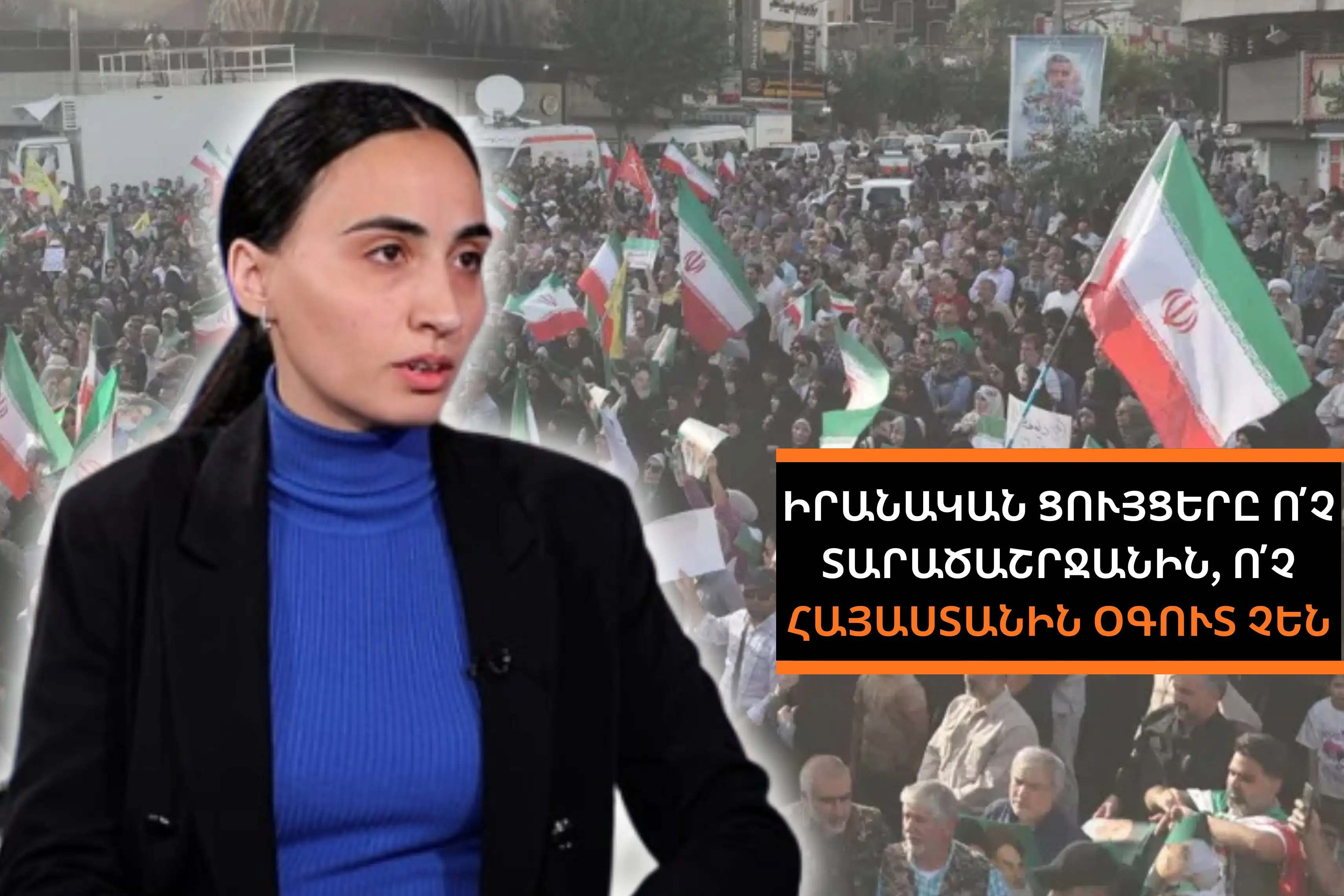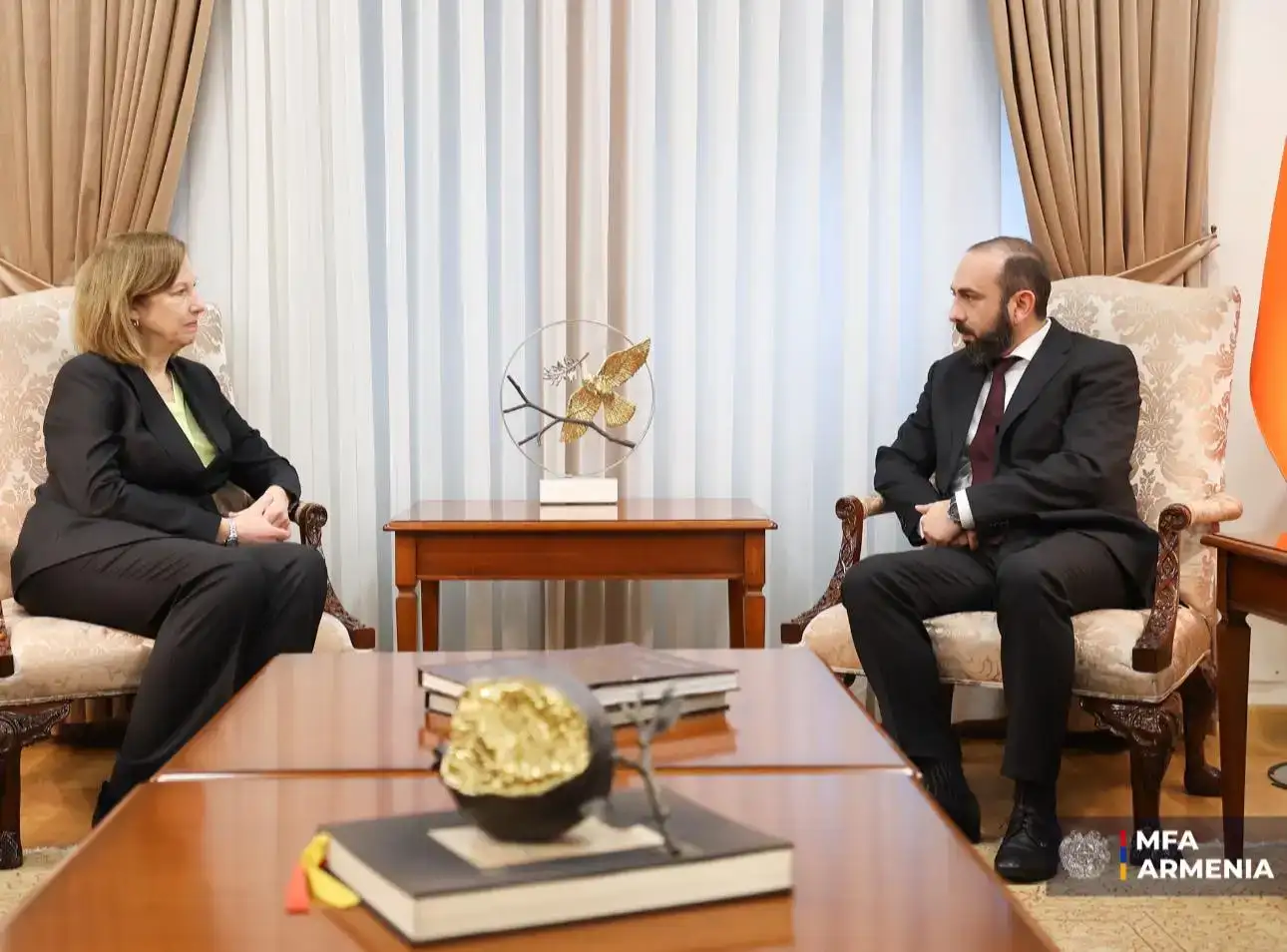Prime Minister Nikol Pashinyan, who is on a working visit to Georgia, participated in the 5th Silk Road Forum, which Georgian Prime Minister Irakli Kobakhidze and Azerbaijani Prime Minister Ali Asadov also attended. The Prime Minister also answered the moderator's question.
Question - We just heard from Prime Minister Pashinyan about the importance of peace and stability, and the steps Armenia is taking to strengthen ties with its neighbors, including Turkey. How do steps aimed at promoting economic relations and regional cooperation, that agenda, strengthen ties? And what role does ties play in promoting the peace agenda and enhancing trust between neighbors?
Prime Minister Nikol Pashinyan: Thank you for the question. But first of all, I would like to thank my colleagues for their speeches and for focusing on the positive aspects.
The atmosphere of the August 8 event is also expressed here. A year ago, we would not have seen such a thing: the Prime Minister of Armenia thanking the Prime Minister of Azerbaijan. We always thank the Prime Minister of Georgia; there is nothing new in that. But a year ago, we would not have seen the Prime Minister of Armenia thanking the Prime Minister or President of Azerbaijan, and the Prime Minister of Azerbaijan thanking the Prime Minister of Armenia. And this is evidence of significant events. Peace has indeed been established between Armenia and Azerbaijan. And I want to pay attention to this nuance, because both I and President Aliyev emphasize this, and it is a reality.
Interconnection is essential for institutionalizing the established peace, because, as I emphasized in my speech, transport connections bring joint benefits. But it should also be said that they introduce interdependencies. Of course, this word may not sound politically harmonious, but this is a very important factor. In other words, what is meant? When countries start cooperating in the field of transport and communications, what effect does it have? It leads to the impact of economic growth, it leads to an increase in budget revenues, it leads to the effect of making state expenditures and increasing the level of well-being of societies, and suddenly the countries understand that they are mutually interested in each other's stability, territorial integrity, sovereignty, and the ability of governments to make independent decisions, because it is imperative that countries, in this case I am talking about the nations of the South Caucasus, when communicating with each other, be sure that we can reach agreements and implement these agreements.
Yesterday, we discussed this topic with Prime Minister Kobakhidze. I shared this thought of mine with Prime Minister Kobakhidze. The established peace is also a perfect opportunity for us to look back at our history of more than a hundred years. When we look at the last hundred years from a slightly different perspective, we understand that our stories are interconnected. I will give the simplest and most famous example. In 1918, Armenia, Georgia, and Azerbaijan gained independence within a few days, only to lose it again shortly thereafter. In 1991, the three countries regained independence at roughly the same time. And when we say we should learn from our history, in 1991, we did not know enough from the 1918-1920 period, and we did not understand why we gained independence together and lost it together. One reason is that we did not appreciate the importance of each other's independence, sovereignty, and statehood. We or our ancestors could gain greater benefits by fighting each other. Meanwhile, history has shown that when we fight each other, we only suffer losses and lose the most important thing: the state and independence.
And I want to make my perception, my conclusion, of why peace between Armenia and Azerbaijan became possible. This has not been discussed. I am expressing my impression; we have never discussed this topic with President Aliyev. In my opinion, there is still an invisible factor that made peace possible; an opportunity was created to see the South Caucasus in a broader context and to understand that nevertheless, and as history shows, despite the conflict, contradictions, and long-standing hostility, in the case of us and Azerbaijan, I mean, the destinies of the countries of the South Caucasus have specific interconnections. And conflict and hostility often do not allow us to notice the common interests we may have.
What is this positive atmosphere today about? It does not mean that the history of our conflict has disappeared; it has been erased in one day. No, it cannot be like that. It means something else: we have begun to notice a little more that the countries of the South Caucasus — Georgia, Azerbaijan, and Armenia — have common interests. And there is a possibility that these common interests have strategic significance.
I did not actually deviate from your question about transport or communications, because if we look at the issues from this perspective, we can achieve regional competition. After all, countries compete with each other, people compete, parties compete —everything is normal. We can use that energy in the South Caucasus to foster an atmosphere of cooperation, recognizing that the cargoes and pipelines that will pass through our region will, in fact, bring income to all our countries.
Therefore, we have a common partnership. Therefore, all of us, when our state budget and public revenues increase, will have an agenda: what to do so that these revenues do not decrease first and, on the contrary, increase. Here is the simplest basis for common interests I was talking about. Thank you.




















